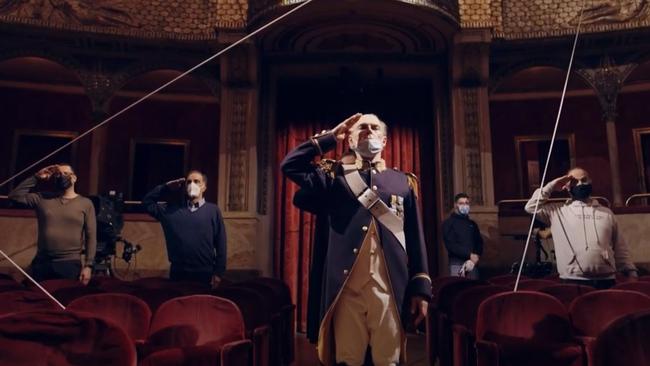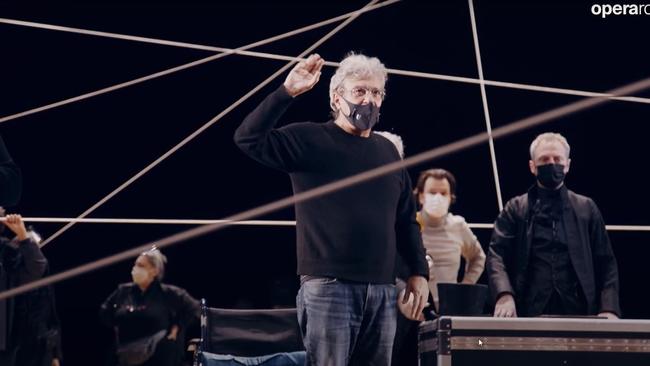Rome’s opera stars take over the stalls to turn Covid captivity into a TV feast
Rome Opera House fought back last week with a bold experiment in which the performers were set free from the stage.

Waving his baton as he faced the orchestra in the pit and performers on stage, the conductor at Rome’s opera house suddenly turned on his heels towards the stalls, where two soloists were singing, and then to the boxes, filled with members of the chorus.
Opera worldwide has been turned on its head as stars have been forced to sing from the stage to empty theatres for the benefit of streaming or TV cameras.
Rome Opera House fought back last week with a bold experiment in which the performers in its season opener, The Barber of Seville, were set free from the stage, allowing them to invade the theatre and belt out arias from the stalls and even the foyer.
“We may not have the public but we have been able to do something which is only possible without them and use all this space - taking control of the theatre,” said Vasilisa Berzhanskaya, a Russian mezzo-soprano who performed the lead role of Rosina in Rossini’s 1816 opera.
Cameras followed the singers and Italians saw the results on TV on Saturday, including one scene in which the performer playing Figaro arrives at the theatre on a motorbike before changing into his costume in the foyer.

When The Times visited during the week, 18 chorus members in the roles of soldiers were being filmed singing in a side foyer before they marched into the boxes.
Inside the theatre, at the end of one scene, Mario Martone, the director, who has been making his experience working on films pay off, called out: “Very good, but can we go again?”
Watching from a box, Carlo Fuortes, head of the opera house, said that the mash-up of opera and TV was his response to the constraints of Covid.
“It would have been stupid to do a traditional Barber of Seville on stage without the public as if nothing had happened,” he said. “It was an amazing occasion to use the theatre, which is such a splendid location, and try something which has not been done before.”
With its soaring tiers of boxes and a massive chandelier, the 19th-century theatre rises to the occasion.
Rome Opera House made headlines in the summer after staging carefully-distanced Rigoletto outdoors at the Circus Maximus to cope with Covid.
Mr Fuortes said allowing singers to roam the theatre was born of necessity, since there was no money from ticket sales for stage scenery. Costumes were found in the opera’s massive wardrobe to avoid buying new ones.
The Barber of Seville revolves around attempts by the young Count Almaviva to free Rosina from the grasp of her elderly custodian, Bartolo. To represent her captivity, ropes were tied between the stage, the orchestra pit, the stalls and the boxes to create a giant spider’s web that filled the theatre.
Mr Fuortes said he saw the web as a metaphor for Covid-enforced captivity. “We need to be creative to exploit a situation I hope we will never see again,” he said.
The Times







To join the conversation, please log in. Don't have an account? Register
Join the conversation, you are commenting as Logout